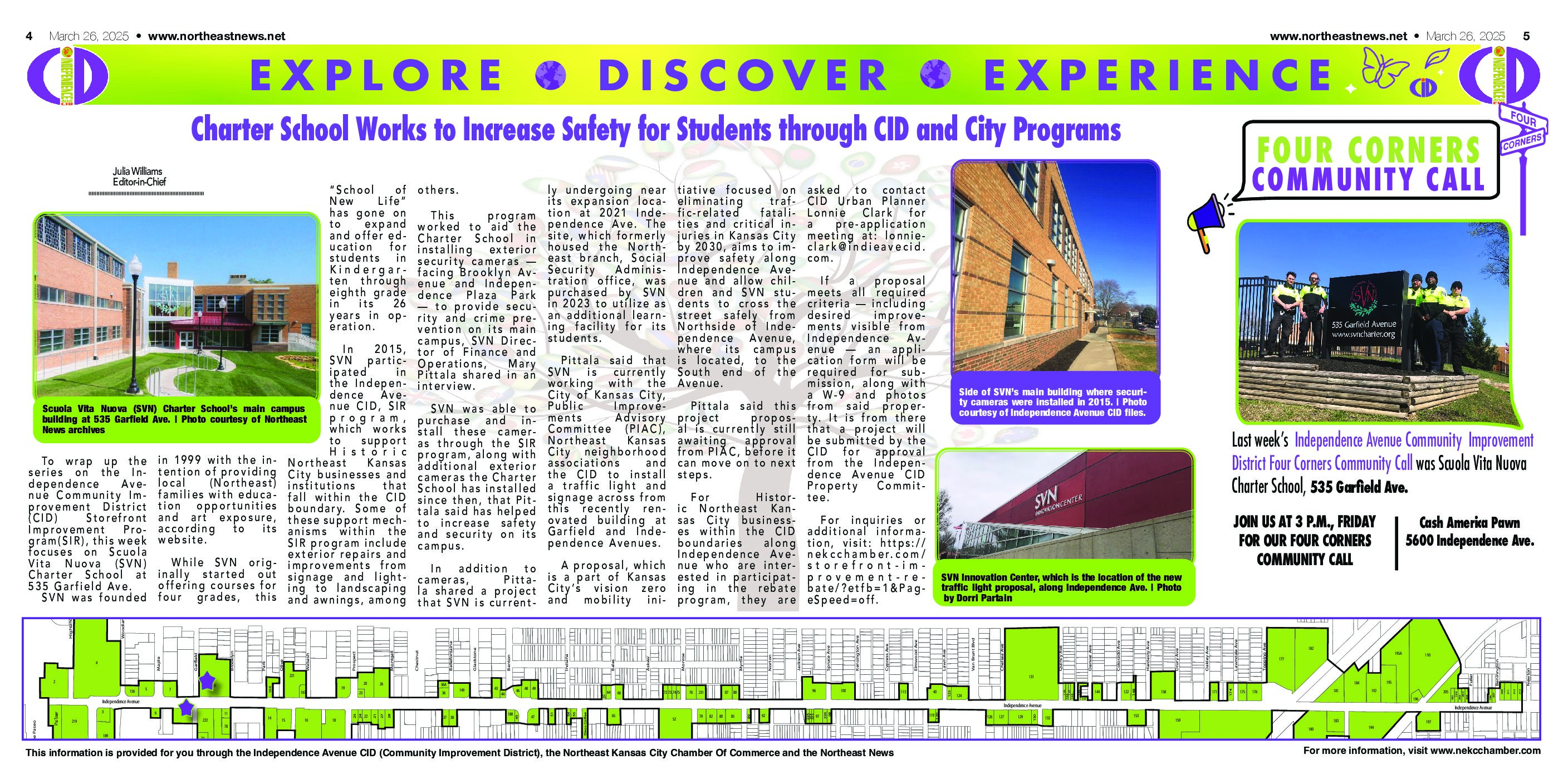By Paul Thompson
Northeast News
October 12, 2016
KANSAS CITY, Missouri – The InterContinental Hotel earned its legal blight designation from the Kansas City Council on Thursday, October 6, thanks in part to a late amendment introduced by 5th District Councilman Lee Barnes, Jr. that swayed several council members.
The luxury international hotel chain sought the blight designation as part of a plan to establish the InterContinental Community Improvement District (CID). The newly-formed CID will now be able to issue a 1% sales tax on purchases made at the hotel. The plan calls for the InterContinental, which is the only business within the proposed district, to use that 1% sales tax to partially reimburse itself for roughly $15.9 million in renovations to the hotel.
Ordinance No. 160669 states that the CID will exist until the district’s debts are satisfied, or for a period of 20 years. However, the ordinance furthers states that the CID can automatically renew for two successive 10-year terms without submitting a new petition to the city.
Several Council members had expressed their discomfort with labeling the InterContinental as blighted as part of the CID designation, and 1st District Councilwoman Heather Hall didn’t even feel comfortable with the notion of passing renovation costs onto the end user.
“I hate to have our citizens and our guests to our city to have to pay an increased amount of money to be able to stay here in our city,” said Hall. “When we impose more taxes on them, that doesn’t seem very welcoming.”
The amendment to Ordinance #160669 creates a cooperative agreement between the City and the owner of the InterContinental Hotel that commits to a focus on local hiring and includes a $250,000 hotel contribution to help senior citizens remedy code violations. Barnes, who called the amendment a “collaborative effort” with fellow 5th District Councilwoman Alissia Canady, indicated that the $250,000 will begin with a $100,000 payment, and will be followed by subsequent payments of $25,000 annually.
Barnes said that the InterContinental Hotel was receptive to the idea of a community contribution tied to the formation of its Community Improvement District (CID), and that the two sides compromised on the ultimate dollar figure and structure.
“That was an important piece, and that was a negotiated piece,” said Barnes. “We didn’t want to just extend it through the life of the CID. We wanted some initial impact on it. To have a greater impact, we thought we needed some things up front.”
5th District Councilwoman Canady noted that the amendment links the legal blight designation being utilized by the hotel with physical blight that’s evident in nearby neighborhoods.
“They’re willing to do something about the real blight that we deal with in Kansas City,” said Canady of the InterContinental.
3rd District Councilmen Jermaine Reed and Quinton Lucas concurred that the amendment proposed by Barnes helped sway their decisions in favor of the ordinance, as did 1st District Councilman and Mayor Pro Tem Scott Wagner. Wagner added that his concerns that other hotels would piggyback on the InterContinental’s CID plan were assuaged by the language included in the amendment.
“What they have done is taken something that was looked at as an insular CID, and provided the opportunity to make it public,” said Wagner.
The Council approved the ordinance handily, as only 1st District Councilwoman Hall and 2nd District Councilman Dan Fowler opposed the amended legislation.
After the meeting, Barnes acknowledged that the Council has now created a precedent of public contribution for other potential single-entity CID’s to follow.
“That’s what we were shooting for,” said Barnes.
Also at the October 6 session, a veto-proof majority of the City Council passed a new economic incentive reform policy that has spent nearly six months in the making.
Economic incentive Ordinance #160383, championed by 3rd District Councilman Quinton Lucas, caps the real property tax abatements that the city could offer a development project at 75%, among a host of other limits to economic incentive packages. The measure also creates the Shared Success Fund, which would in turn reinvest those extra funds into some of the most economically distressed parts of the city.
The Council voted 9-4 to pass the ordinance despite the objections of Mayor Sly James, who remained steadfast in his belief that the Shared Success Fund should be tied to standalone legislation that creates an unbiased board of appointees. As the ordinance currently stands, the Shared Success Fund would be controlled by the Planning, Zoning, and Economic Development Committee.
Lucas presented written statements of support for the ordinance from a handful of community stakeholders, including the Kansas City Public Library and the Kansas City Public Schools District.
“I think a lot of the parties were interested in the compromise we were able to reach,” said Lucas. “Today we received letters from J.E. Dunn, the American Federation of Teachers, a petitioner’s group, and a number of others. It shows that the city really does want some smart reform.”
“I think what we’ve seen today is the culmination of a lot of good work, not necessarily from this board, but from a series of others,” added Lucas.
James had argued that the economic incentive reform measure could have unintended consequences for the city, especially as it relates to the Shared Success Fund. Lucas, however, bristled at the idea that the Council had not fully considered the implications of the ordinance.
“I’d remind him that five of the six Council members who represent the East side of Kansas City were actually co-sponsors on this ordinance,” said Lucas. “To suggest that we haven’t thought about Shared Success, and that we don’t see the benefit it can do for East Kansas City is incorrect.”
As of Monday, October 10, it was still uncertain whether Mayor James would veto the legislation. Since nine Council members voted for the ordinance on October 6, the measure would be veto-proof unless at least one member changes their vote.
“I think it’s still in flux. There’s still the question of the mayoral veto,” said Lucas. “Nine votes is a veto-proof number, so I hope that instead of working on that, we can work on ways to help build development in Kansas City.”
Lucas had previously explained to the Northeast News how the ordinance will be a boon for the Historic Northeast by providing dollars through the Shared Success Fund and directing investment incentives to the Independence Avenue corridor.
“The ordinance would play out exceptionally well for the Northeast area,” Lucas said.
Kerrie Tyndall, Kansas City’s Director of Economic Development, said the revenue that goes into the Shared Success Fund will be pooled together. How much money the Shared Success Fund generates, and thus how much the Northeast area stands to benefit, will be tied to the state of economic development throughout the city.
“It’s going to depend on the overall development pipeline,” said Tyndall.
KC Council approves InterContinental CID, economic incentive reform
Related Posts
Altercation Involving Gunfire Results in Homicide, Friday Evening
Admin BREAKING — Just after 8:30 p.m., on Friday, March 28, Kansas City Police Department (KCPD) officers dispatched to the 400 block of Park Ave., within the Pendleton Heights neighborhood…
Northeast News Print Schedule Update
Admin On April 2, 2025, The Northeast News will move from an 8-page, WEEKLY print publication to a 12-page BIWEEKLY (every other week) print publication. However, digital content will continue…



















